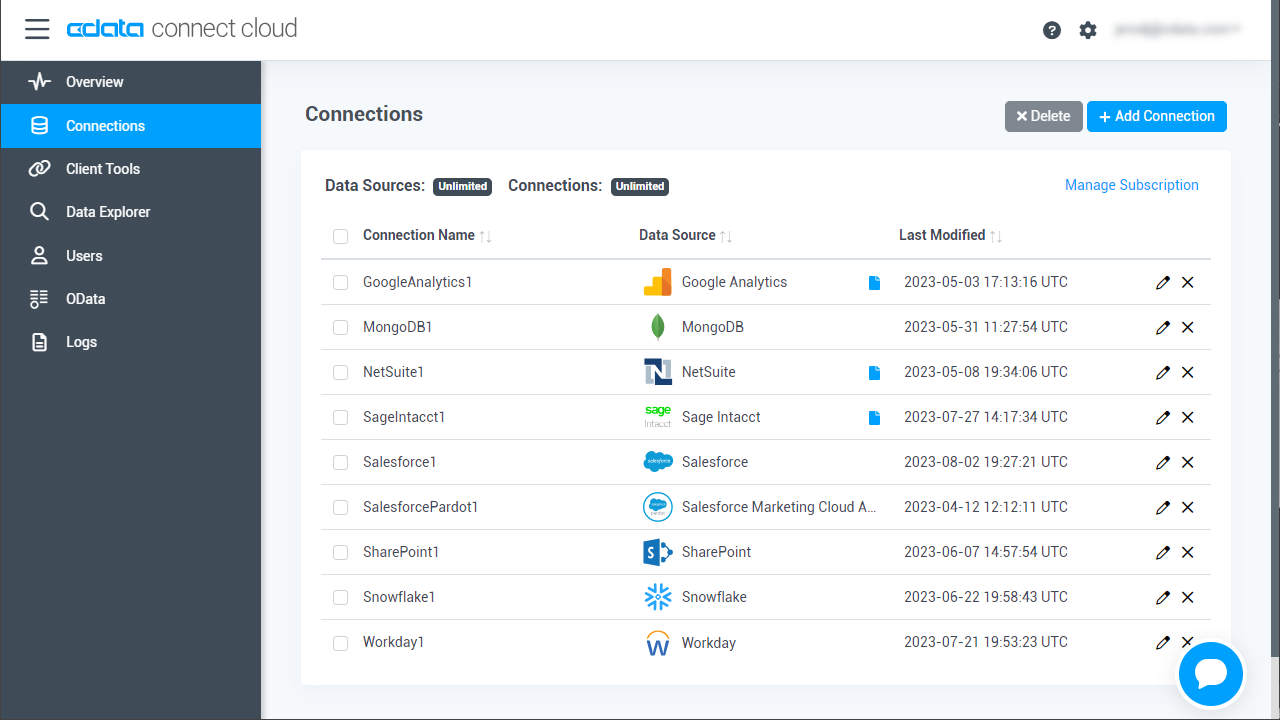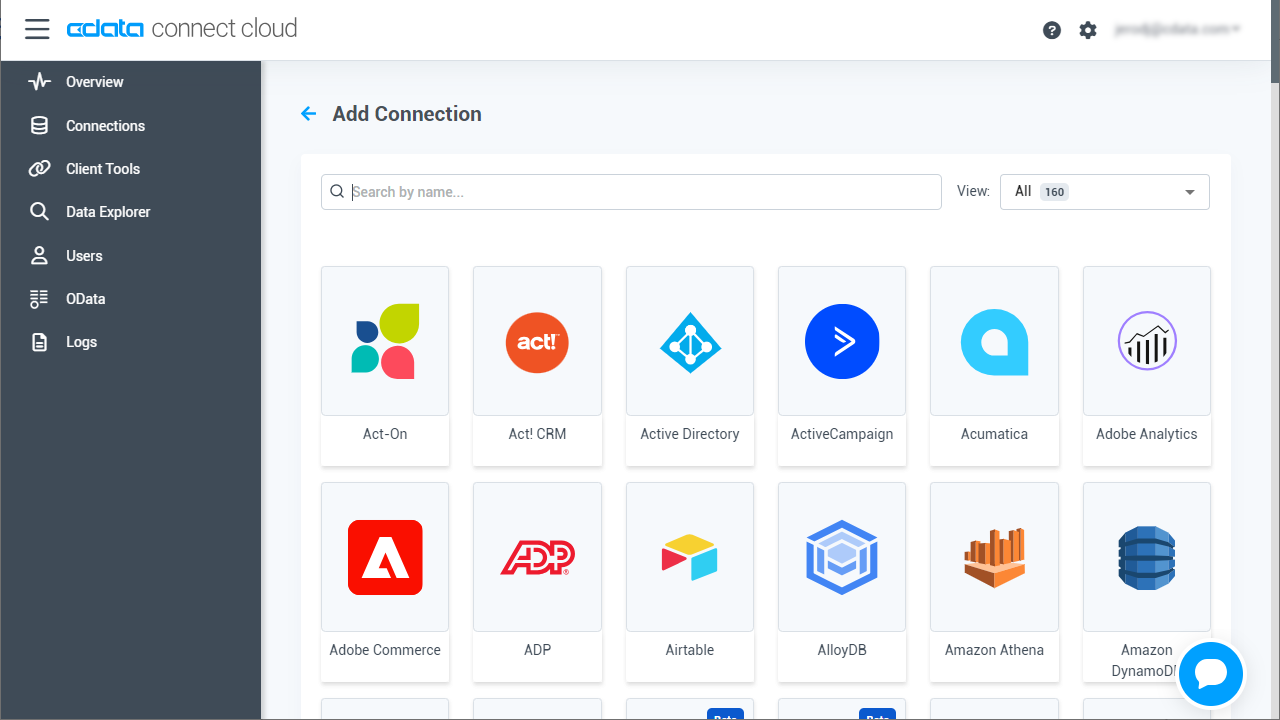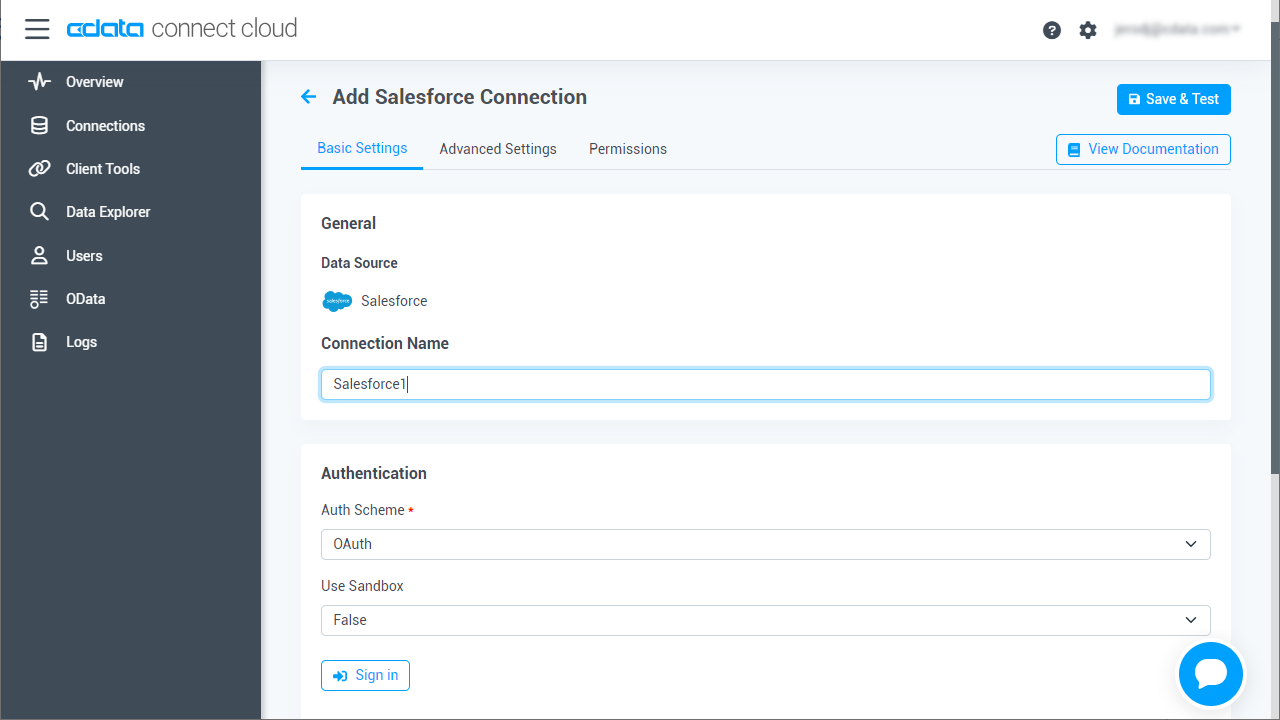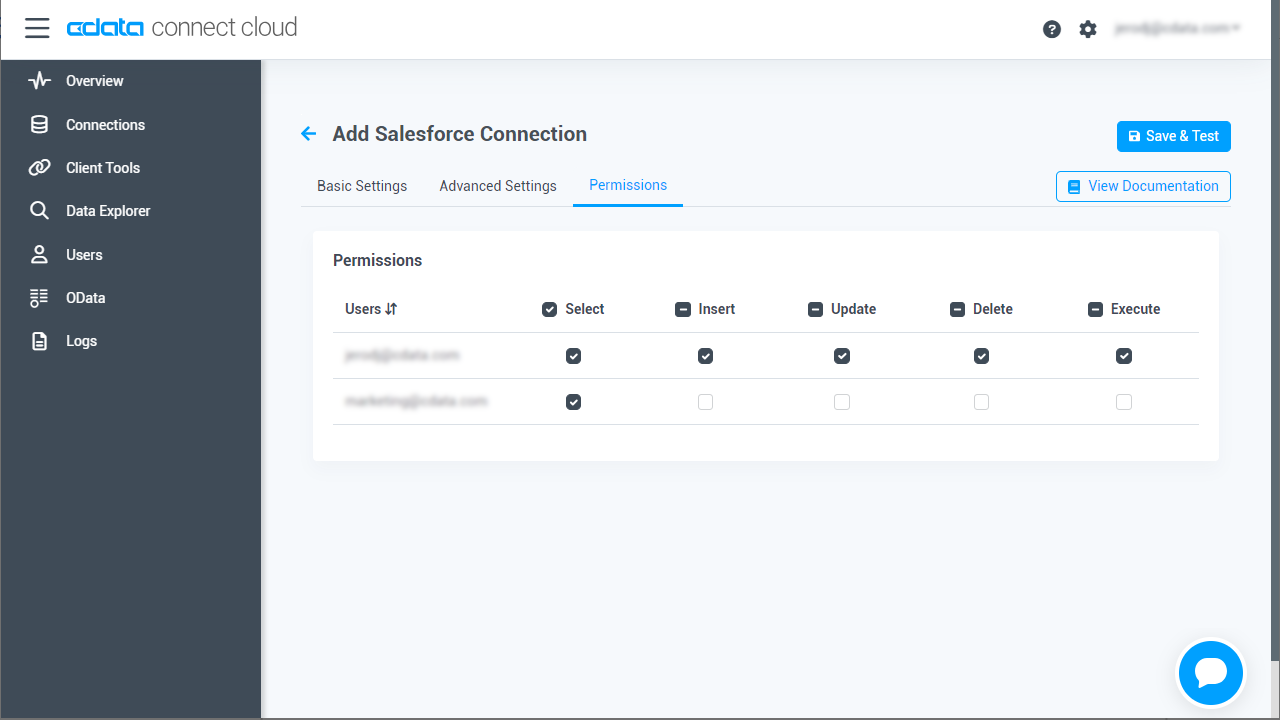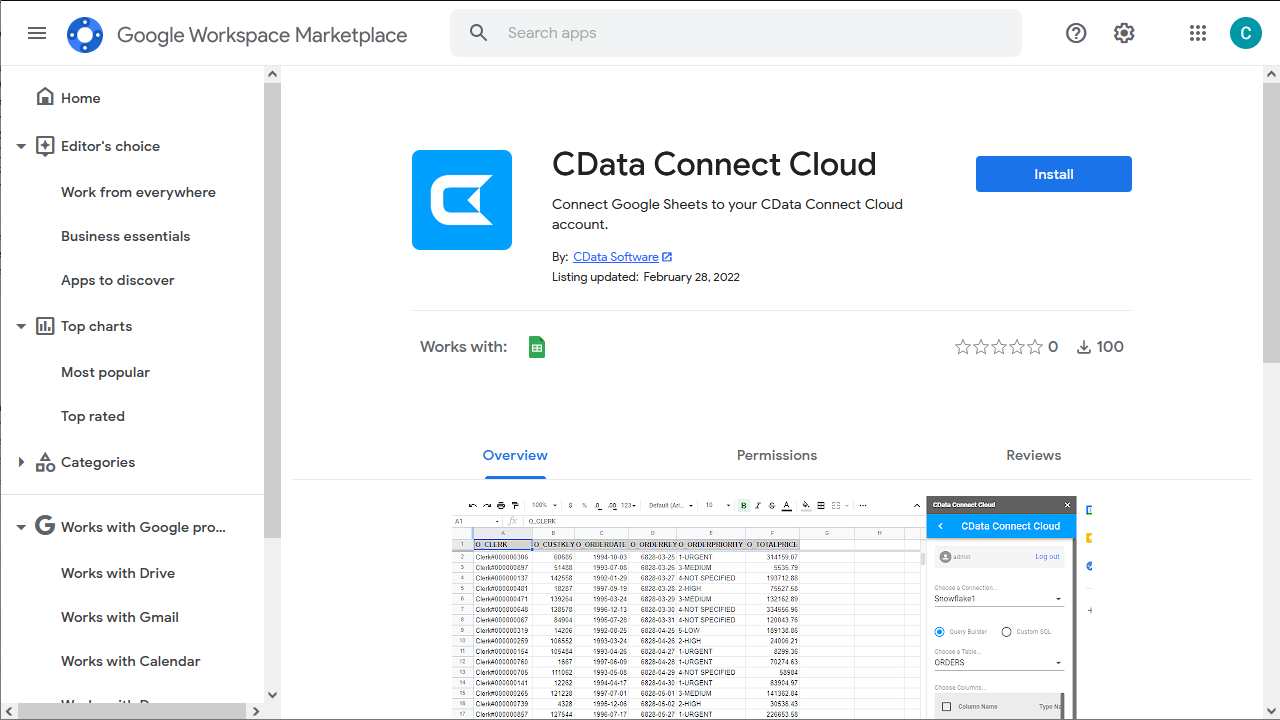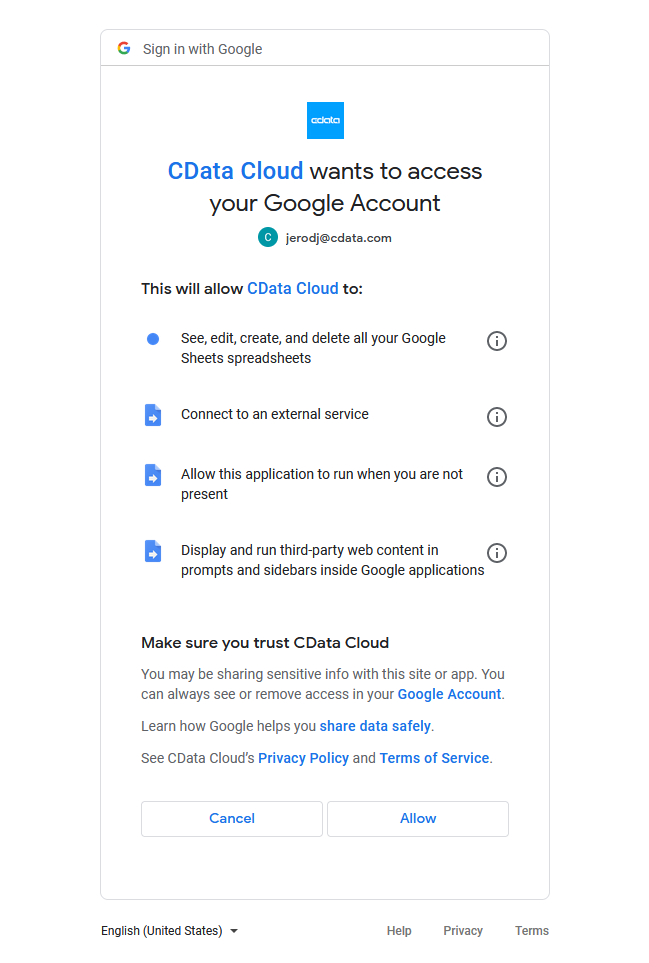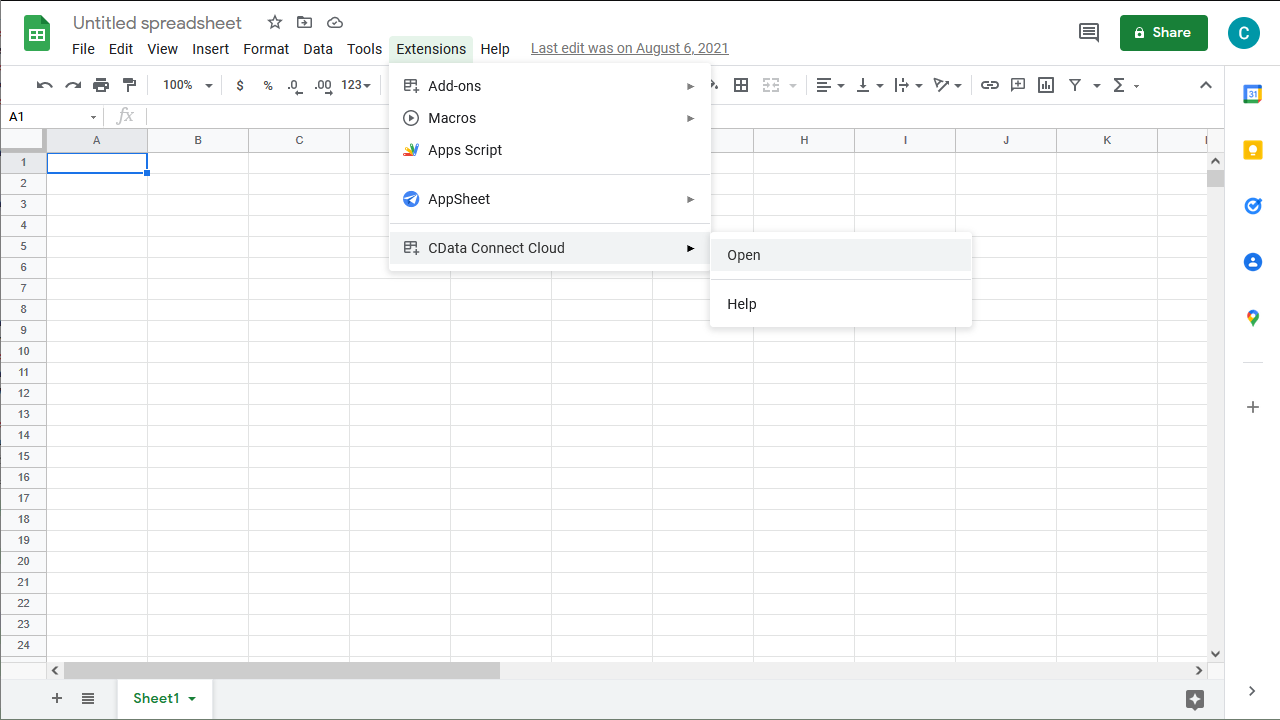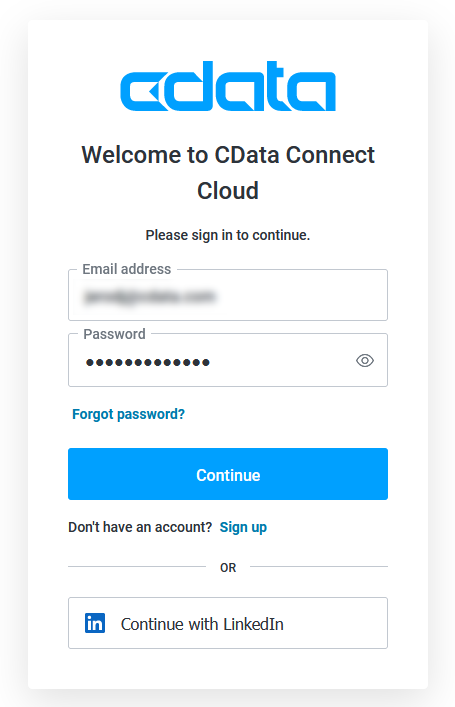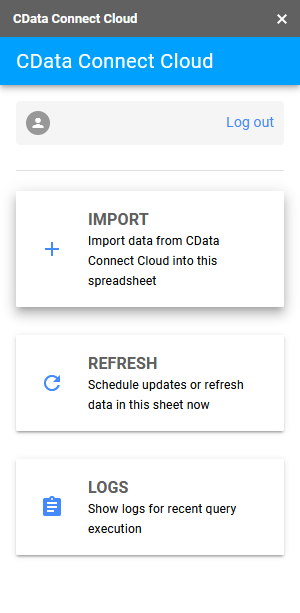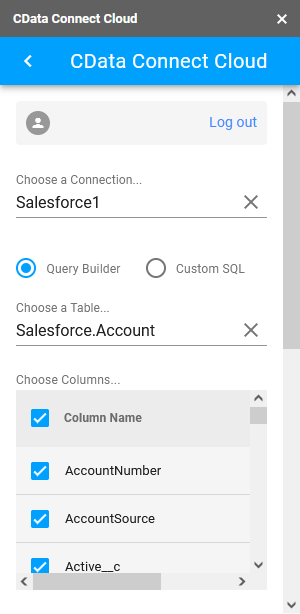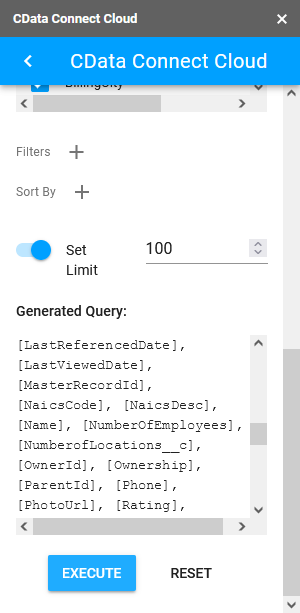Discover how a bimodal integration strategy can address the major data management challenges facing your organization today.
Get the Report →Access Live AlloyDB Data in Google Sheets
Use CData Connect Cloud to gain access to live AlloyDB data from your Google Sheets.
Google Sheets is a web-based spreadsheet program provided by Google. When integrated with CData Connect Cloud, you can effortlessly gain access to AlloyDB data directly within Google Sheets for tasks such as data analysis, collaboration, calculations, and more. This article offers a comprehensive guide on connecting to AlloyDB within your Connect Cloud instance and accessing live AlloyDB data seamlessly within Google Sheets.
CData Connect Cloud offers a seamless cloud-to-cloud interface designed for AlloyDB, enabling effortless access to live AlloyDB data directly within Google Sheets. Use the dedicated Connect Cloud Google Sheets Plug-In to connect with live AlloyDB data. With built-in optimized data processing, CData Connect Cloud efficiently channels all supported query operations, including filters, JOINs, and more, directly to AlloyDB. This leverages server-side processing to promptly retrieve the desired AlloyDB data.
This setup requires a CData Connect Cloud instance and the CData Connect Cloud Add-On for Google Sheets. To get started, sign up a free trial of Connect Cloud and install the free Connect Cloud Google Sheets Add-On.
Configure AlloyDB Connectivity for Google Sheets
Connectivity to AlloyDB from Google Sheets is made possible through CData Connect Cloud. To work with AlloyDB data from Google Sheets, we start by creating and configuring a AlloyDB connection.
- Log into Connect Cloud, click Connections and click Add Connection
![Adding a Connection]()
- Select "AlloyDB" from the Add Connection panel
![Selecting a data source]()
-
Enter the necessary authentication properties to connect to AlloyDB.
The following connection properties are usually required in order to connect to AlloyDB.
- Server: The host name or IP of the server hosting the AlloyDB database.
- User: The user which will be used to authenticate with the AlloyDB server.
- Password: The password which will be used to authenticate with the AlloyDB server.
You can also optionally set the following:
- Database: The database to connect to when connecting to the AlloyDB Server. If this is not set, the user's default database will be used.
- Port: The port of the server hosting the AlloyDB database. This property is set to 5432 by default.
Authenticating with Standard Authentication
Standard authentication (using the user/password combination supplied earlier) is the default form of authentication.
No further action is required to leverage Standard Authentication to connect.
Authenticating with pg_hba.conf Auth Schemes
There are additional methods of authentication available which must be enabled in the pg_hba.conf file on the AlloyDB server.
Find instructions about authentication setup on the AlloyDB Server here.
Authenticating with MD5 Authentication
This authentication method must be enabled by setting the auth-method in the pg_hba.conf file to md5.
Authenticating with SASL Authentication
This authentication method must be enabled by setting the auth-method in the pg_hba.conf file to scram-sha-256.
Authenticating with Kerberos
The authentication with Kerberos is initiated by AlloyDB Server when the ∏ is trying to connect to it. You should set up Kerberos on the AlloyDB Server to activate this authentication method. Once you have Kerberos authentication set up on the AlloyDB Server, see the Kerberos section of the help documentation for details on how to authenticate with Kerberos.
![Configuring a connection (Salesforce is shown)]()
- Click Create & Test
- Navigate to the Permissions tab in the Add AlloyDB Connection page and update the User-based permissions.
![Updating permissions]()
With the connection configured, you are ready to connect to AlloyDB data from Google Sheets.
Access Live AlloyDB Data from Google Sheets
The steps below outline connecting to CData Connect Cloud from Google Sheets to access live AlloyDB data.
- Log into Google Sheets, create a new sheet (or open an existing one).
- Click Add-ons and click Get Add-ons (if you have already installed the Add-on, jump to step 5).
- Search for CData Connect Cloud Add-On and install the Add-on.
![Install the Add-On]()
- Authorize the Add-On.
![Authorize the Add-On]()
- Back in Google Sheets, click Add-ons and open the CData Connect Cloud Add-On.
![Opening the Add-On]()
- In the Add-On panel, click Authorize to authenticate with your CData Connect Cloud instance
![Authenticating with CData Connect Cloud]()
- In the CData Connect Cloud panel in Google Sheets, click Import
![CData Connect Cloud panel in Google Sheets]()
- Choose a Connection (e.g. AlloyDB1), Table (e.g. Orders, and Columns to import
![Cheesing a Connection, Table, and Columns]()
- Optionally add Filters, Sorting, and a Limit
![Filters, Sorting, Limits]()
- Click Execute to import the data
Live Access to AlloyDB Data from Cloud Applications
New, you have a direct, cloud-to-cloud connection to live AlloyDB data from your Google Sheets workbook. You can add more data to your workbook for calculations, aggregations, collaboration, and more.
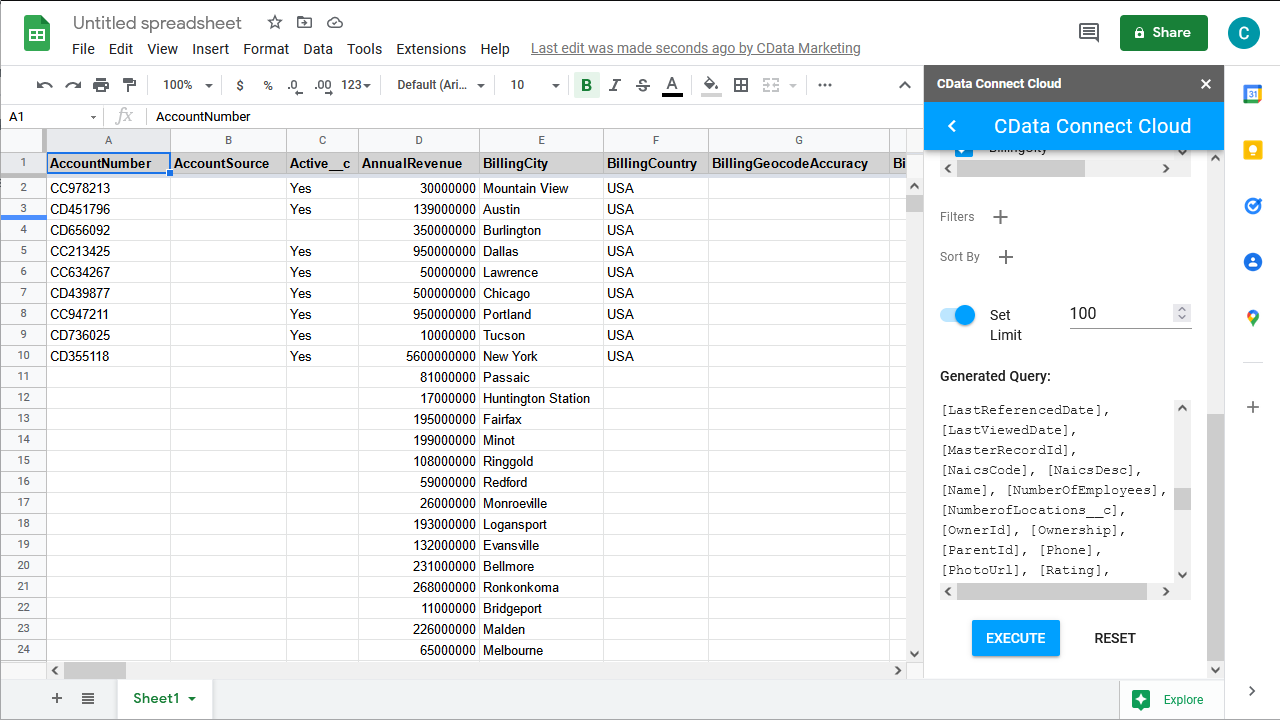
Try CData Connect Cloud and get real-time data access to 100+ SaaS, Big Data, and NoSQL sources directly from your cloud applications.






